Jim’s Top Ten of 2016
I made a determined effort in 2016 to see as many critically lauded films as I possibly could, telling myself that the inadequacy and incompleteness that I’ve imminently felt when it came time for year-end top ten lists would, for once, be somewhat stifled. Yet, here I am, attempting to write a top ten list having not seen Weiner, Hell or High Water, I Am Not Your Negro, Kubo and the Two Strings, Certain Women, and too many other films to count that other bloggers and podcasters have raved about. I’ve let go of the idea that my opinions represent that of any significant corner of the film criticism world and thus, present to you, faithful reader, a meager representation of my limited exposure to the world of 2016’s cinema.
10. Christine
That Christine was largely ignored in 2016 can only be attributed, I assume, to the release of Kate Plays Christine, a festival circuit favorite dealing with the same subject matter – that of the public suicide of TV newscaster Christine Chubbuck – but approached in an unconventional way – a mockumentary of an actress abandoning a proposed biopic because of the story’s emotional turmoil. But while Christine looks on paper to be a standard biopic of tragedy, it’s the directing of Antonio Campos that makes it anything but conventional. The same unflinching and non-judgmental approach that Campos brought to the unnerving Afterschool is applied to the unfolding story of an already depressed woman trying to make a name for herself in the male-dominated field of ever-(d)evolving broadcast news. Campos never attempts to oversentimentalize Christine’s plight, opting instead to pragmatically execute the algorithm written by Craig Shilowich’s script, even presenting her on-camera suicide as an unglamorous, matter of fact result of all the proceeding factors.
9. Loving
It took time for Loving to grow on me, having initially and wrongly tossed it aside into the “Disappointments” folder alongside Midnight Special. Jeff Nichols, who so excelled at moments of high tension and drama in past films Take Shelter and Mud largely ignores so-called “moments” in Loving, focusing instead on the response and reactions to what transpires and/or is referred to off screen – court scenes, for instance, are entirely absent from Loving despite the fact that the real-life marriage of Richard and Mildred Loving was legally upheld in the highest court of this country. At first, that approach annoyed me – like a song that plays the rests rather than the notes. But the more I thought about it, the more I thought that Nichols’s execution was perfectly suited for the story of two unassuming people who persevered out of an intimate, personal connection rather than because of any drive to change history. Rather than a song that plays the rests over the notes, Loving is a poem in the vein of Jane Campion’s Bright Star, a reaction to events rather than an attempt at dramatization.
8. Don’t Think Twice
It would be inaccurate and unfair to say that Don’t Think Twice is just a film about how the times they are a-changin’ for some creative 20-somethings trying to make names for themselves in the oversatured world of New York City’s comedy scene. That’s certainly what drives the plot along, but what anchors the film emotionally is its exploration of how thin the wall between comedy and tragedy actually is and how, often, the two exist in conjunction with each other. Sophomore feature director and longtime standup standout, Mike Birbiglia, wisely opts to include a scene of improv comedy performances immediately after each scene of tragedy and emotional distress, highlighting the perpetual co-existence and integration of laughter with sadness. Comedians know that one cannot exist without the other, a truth that becomes all the more poignant the older we get and the more we have to consider whether our goals or dreams have to be pursued, modified, or given up on altogether. A fantastic lead performance by Gillian Jacobs is supplemented by some of the best and brightest talents in standup and sketch comedy: Keegan-Michael Key, Kate Micucci, Chris Gethard, and Tami Sagher.
7. Hunt for the Wilderpeople
Seriously, did nobody see this film? That’s the only way that I can make sense of Hunt for the Wilderpeople’s utter lack of presence on year end lists and awards. Perhaps comedy just isn’t taken as seriously as much anymore (and in this current political climate, isn’t that even more of a tragedy?), but Taika Waitit’s wildly sharp and emotionally touching adventure comedy is an absolutely delightful film, a refreshing execution on the tried and true fish out of water formula chock full of memorable performances (from Sam Neill’s curmudgeonly Hec to Rhys Darby’s endearingly insane Psycho Sam) and old school practical effects and camera tricks (the boar is a suit and the 360 camera spin is all in camera!). Hunt for the Wilderpeople was so good that it got me actively excited for the next Thor installment (and that’s saying something considering it’s the least exciting series of films in the entire MCU).
6. Silence
The last time I watched Scorsese’s meditation on faith and doubt (I didn’t see Kundun), it was The Last Temptation of Christ and I left equally inspired as I was reeling. Silence did that to me again. I was predisposed to like Silence, perhaps, being a Christian who has seen his own faith be deconstructed and reconstructed through the doubt that’s brought upon by both the silence and uncomfortable answers that I have to assume are coming from the God that I follow. The script by Scoresese and Jay Cocks doesn’t provide answers, the cinematography by Rodrigo Prieto emphasizes vast emptiness and distance, and the performances by a stellar supporting cast craft a film that is more concerned with asking questions than providing answers, a task that Scorsese knows full well as both a filmmaker and former aspiring priest is sometimes the most that we’re guaranteed in this world. The film settles on its own Truth and its own peace and while it may not make viewers comfortable, it makes complete sense as a destination for the path on which Fr. Rodrigues (Andrew Garfield) set out.
5. 13th
Anger is an easy trap in which social justice documentaries fall. It’s a much harder and more nuanced task for them to edify. That’s not to say that documentaries and racism and classicism in America won’t teach you things you didn’t previously know, but it’s a fine line between arming you with a futile rage and arming you with knowledge and an approach. 13th marvelously pulls off the latter of those two tasks with Ava DuVerney crafting her documentary as (I’m sure) we’d all love to ideally craft our conversations with our political dissidents: even-keeled, fact-based, and meticulously intelligent in piecing together an insightful thesis based in verifiable history. What results is a cinematic litmus test, in which the conclusions you reach or the emotions incited speak as much to the history that shaped you as it does to the history that – as far as 13th is concerned – set up the 13th Amendment to be institutional slavery. DuVerney would probably not dissuade you if your response is anger, but that does not seem to be her drive. She seeks instead to educate and illuminate even, seeming to subtly imply a gap to still be overcome through some of her uncomfortably spacious framing of interviewees.
4. Moonlight
“At some point, you gotta decide for yourself who you’re going to be. Can’t let nobody make that decision for you.” Those words, spoken by Juan (Mahershala Ali), are featured prominently in the trailers for Moonlight, though they’re probably easier believed by the man whose cornered the local drug trade than by Little (Alex Hibbert), whose earliest and most formative memories of who he is – a young, gay man – will bear an unequal amount of influence over who he is going to be. Moonlight is quite often visually beautiful, but emotionally gut-wrenching in its depiction of a man struggling with the juxtaposition of being who he is in a world that seems to be doing everything it can to show him that he’s not wanted.
3. The Witch
I can’t remember the last time I saw a filmmaker with such an assured command of mood and tone as Robert Eggers has with The Witch. From one of the opening shot constructions that sees a POV of the family being literally shut out of their village only to have the camera open up to the entering an expanse of dense, brooding, and uncaring nature. It’s not just the certainty of safety and community that Thomasin (Anya Taylor-Joy) and her family are leaving, but also the certainty of believe and constructs of power. The argument could be made (by someone much smarter than I) that Silence and The Witch are companion films in what they have to say about the presence of God in their respective protagonists’ lives, but The Witch introduces a very real antagonist that could act as a stand in for any corrupting force – fundamentalism, patriarchy, blind faith, and even, if you wish, the actual devil.
2. Arrival
This is going to sound weird, but Arrival is objectively the best film I’ve seen this year and yet the reason why it sits at number 2 will be explained when I get to number 1. I’m naturally a sucker for films that tell a story non-linearly (especially when it does it as effectively and deceptively as Eric Heisserer’s script does), but I’m even more of a sucker for a genre film that manages to be both prescient and something that will stand as a mile marker for future generations looking back through today’s art to see what issues either united or divided us. The performances are excellent, the cinematography is breathtaking, the score is evocative, and the story will forever stand as a humbling allegory about the divisions within our own interpersonal, geographical, and political communications. Whether we end up overcoming those or destroying ourselves will be up to the generations that discover this time capsule to decide.
1. La La Land
As I said, Arrival is objectively the better, more impressive, longer lasting film. But subjectivity is a HUGE part of film criticism and audience reaction and when I saw Damien Chazelle’s homage to old school Hollywood musicals – with its bright primary colors, uninterrupted dance numbers, and message about the virtues of pursuing one’s dreams – it hit me at just the right time and place in my life where I was going to respond to it as positively and enthusiastically as I did. I completely understand why people don’t like it and I’ll completely understand if there’s a backlash against it for what I’m sure will be an ungodly number of Oscar wins, but sometimes what I need when I go to the movies isn’t to be educated or preached to or exposed to a new life experience previously unknown to me; sometimes all I need is to be entertained, to be distracted, to be given a reason to believe that there is inherent value to dreams, that there is joy in song and dance, and that there is beauty to be found even when we’re not expecting it.



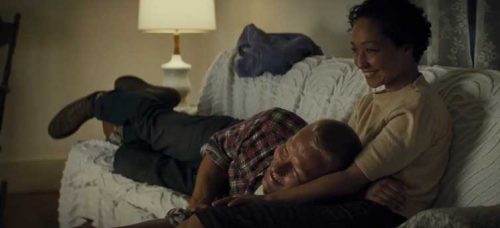




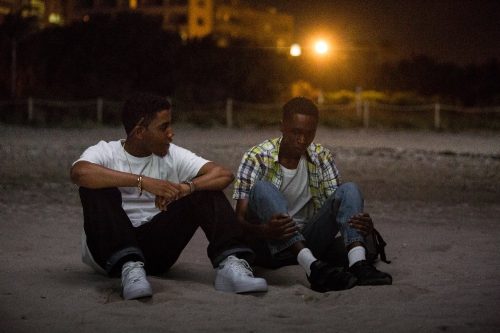
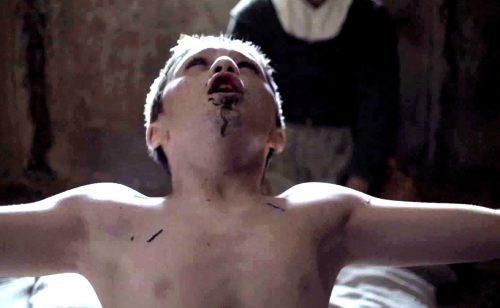

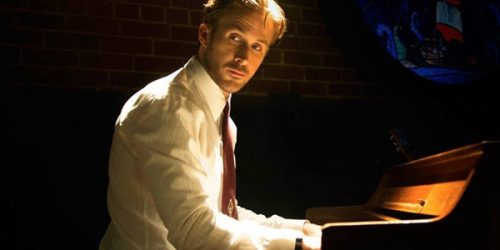

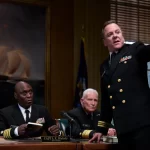
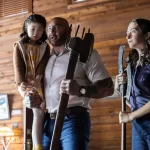

























Hey, Jim,
What were your Top Ten IDMB pictures for 2016?
Oof. Haven’t even really given too much thought to that, but upon a cursory glance, I’ll give you my top 5 in no particular order:
Modern Times (Charlie Chaplin)
Fish Tank (Andrea Arnold)
Do the Right Thing (Spike Lee)
Inside (Maury, Bustillo)
Picnic at Hanging Rock (Weir)